Technology
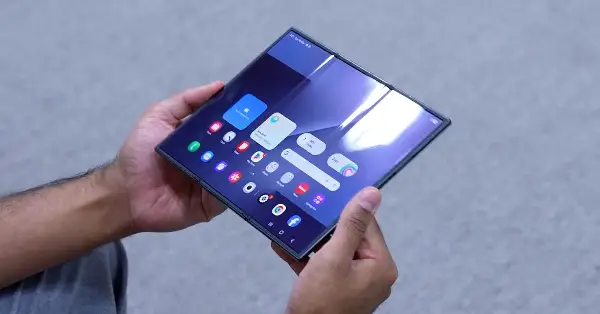
Samsung Galaxy Z TriFold Durability Test Shows Hinge Giving Way After 150,000 Folds
The Samsung Galaxy Z TriFold, a brand new form factor from the company, has undergone a durability test to assess its ability to withstand repeated folding and unfolding. According to Samsung, the device has been tested for 200,000 folds, which simulates 100 folds per day for 5 years. However, a YouTube channel called "OMG_electronics" conducted its own test, livestreaming the folding and unfolding process until the device showed signs of wear. The test, which took place over several days, found that the Galaxy Z TriFold's hinge started to creak after around 61,000 folds, with the second hinge following suit after 121,000 folds. At around 144,000 folds, the hinge elasticity gave way, making it difficult to open and close the device. Although the display was still functional, the device's usability was significantly impaired. Despite not reaching Samsung's promised 200,000 folds, the Galaxy Z TriFold held up relatively well considering the intense testing conditions. The device is set to launch in the US in early 2026, with a likely price tag of around $2,800.

Google One Offers Limited-Time 50% Discount on Annual 2TB and AI Pro Plans
Google One is offering a limited-time discount for new subscribers, providing 50% off its 2 TB and AI Pro annual plans. The promotion, framed as a way to "Capture every moment of the new year," starts with the Basic 100 GB plan at $9.99 for one year, instead of the usual $19.99. This storage can be used across Gmail, Google Photos, and Drive. The Premium 2 TB plan is discounted to $49.99 for 12 months, with the price returning to $99.99 the following year. This plan includes 10% back in the Google Store, premium Workspace features like longer Meet calls that can stream to YouTube, and enhanced Calendar appointment scheduling. Additionally, the Google AI Pro plan is available for $99.99 for the first year, down from $199.99. This plan comes with 2 TB of storage, Google Home Premium Standard, a small YouTube Premium add-on discount, and expanded features in the Gemini app, including higher usage limits and expanded image generation and editing capabilities. These discounts are available for new subscribers only and are set to expire around New Year's Eve. Interested individuals can sign up at one.google.com/ai-nye.

2025 Tech Review: Musk's Rise and Fall, AI Dominance, and Trump's Influence
The year 2025 saw significant developments in the tech industry, with Elon Musk's rapid rise and fall being a major highlight. Musk's support for Donald Trump made him a powerful figure, but his claim about the US president's connection to Jeffrey Epstein led to his downfall. Despite this, Musk's companies, such as SpaceX, continued to grow, with plans for an initial public offering in 2026. However, Tesla faced backlash and declining sales due to Musk's politics and increasing competition from Chinese counterparts. Artificial intelligence became a dominant force in the industry, with major companies like Apple, Amazon, and Google investing heavily in AI development. This led to concerns about a potential financial bubble and the need for regulation. The construction of data centers to support AI growth also raised environmental concerns. The tech industry's relationship with Trump deepened, with many Silicon Valley leaders embracing his policies and donating to his inaugural committee. This led to deregulation and cooperation with US Immigration and Customs Enforcement. Australia made headlines by banning children under 16 from social media, a move that was met with protests from tech companies. In a bizarre twist, billionaire Peter Thiel gave a series of lectures about the antichrist and the coming of the end times, which were leaked and sparked widespread interest. Overall, 2025 was a year of significant change and development in the tech industry, with major implications for the future.
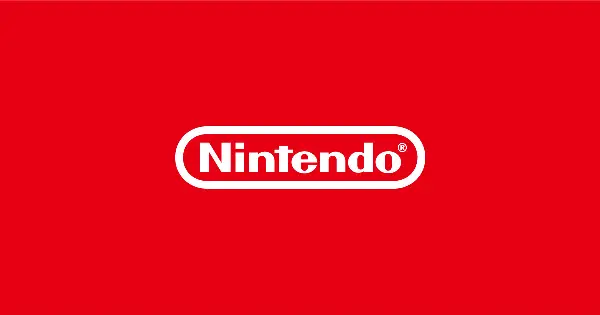
Nintendo Switch Offers Variety of Free-to-Play Games
Nintendo Switch and Nintendo Switch 2 users can access a range of free-to-play games. These games are available for download and can be played immediately without any initial cost. The selection includes various titles that can enhance a user's game library, whether they are just starting out or looking to expand their collection. Some of the games offer optional in-game purchases, which can provide quicker progress for players who choose to use them. This option allows users to customize their gaming experience based on their preferences and budget. With the availability of these free games, users can enjoy quality gaming on their Nintendo Switch or Nintendo Switch 2 without incurring significant expenses. The free-to-play model provides an opportunity for users to try out different games and discover new favorites. Overall, the Nintendo Switch and Nintendo Switch 2 offer a convenient and affordable way to access a variety of engaging games.

Ikea Lowers Prices on Select Smart Home Devices
Ikea has reduced the prices of several of its new smart home accessories, making them more affordable for consumers. The Myggspray motion sensor and Klippbok water sensor now cost $7.99, down from $9.99. Additionally, the three-pack of colorful two-button Bilresa remotes has been discounted to $14.99 from its initial launch price of $19.99 in the US. These devices are part of Ikea's Matter-compatible smart home lineup, which aims to provide seamless integration and control across various smart home products. The price drop comes as the cost of some electronics continues to rise, making Ikea's move a notable exception. The discounted prices are currently available in the US market. With these new prices, Ikea's smart home devices become even more competitive in the market, offering consumers budget-friendly options without compromising on features and compatibility. The company's decision to lower prices may attract more customers looking to upgrade their smart home systems with affordable and efficient solutions.

Best PC Games of 2025 According to Metacritic
The year 2025 has been exceptional for PC gamers, with numerous highly-acclaimed games released across various genres. According to Metacritic, some of the top-rated PC games of 2025 include Hades 2, Blue Prince, and Clair Obscur: Expedition 33. Hades 2 expands on the original game's combat and story, offering a more immersive experience. Blue Prince is a puzzle game with a unique gameplay loop, while Clair Obscur: Expedition 33 is a turn-based RPG with captivating gameplay systems and a rich storyline. Other notable games include Hollow Knight: Silksong, a challenging metroidvania game, and Split Fiction, a co-op game with a creative and ambitious approach. Final Fantasy 7 Rebirth and The Last of Us Part II Remastered are also among the top-rated games, offering engaging stories and improved graphics. Additionally, games like Monster Hunter Wilds, Dragon Quest I & II HD-2D Remake, and Final Fantasy Tactics: The Ivalice Chronicles have received high praise for their gameplay and nostalgic value. The list also features games like Absolum, a beat-'em-up with roguelike elements, and The Roottrees Are Dead, a murder mystery game with a unique twist. Overall, 2025 has been a great year for PC gaming, with a wide range of games catering to different tastes and preferences.

Samsung Unveils 2026 Gaming Monitors with 6K, 3D, and Up to 1,040Hz Refresh Rates
Samsung has announced its 2026 lineup of gaming monitors, featuring advanced technologies such as 6K displays, glasses-free 3D, and high refresh rates. The Odyssey 3D G90XH is the first monitor to feature a 6K display with real-time eye-tracking and a 165Hz refresh rate, which can be boosted to 330Hz with a Dual Mode feature. This monitor is an upgrade to the 27-inch 4K display revealed during CES last year. The company is also launching the Odyssey G6 G60H, which boasts a 1,040Hz refresh rate in HD and 600Hz in 1440p. Additionally, Samsung has revealed three new Odyssey G8 monitors, including a 32-inch 6K model with a 165Hz refresh rate and a 27-inch 5K model with a 180Hz refresh rate. These new monitors will support various technologies, including AMD FreeSync Premium and NVIDIA G-Sync. Although pricing and release dates have not been announced, the Odyssey 3D is expected to be pricey, given the $2,000 price tag of Samsung's 4K 3D screen. The new monitors will be compatible with select games, including Stellar Blade, Lies of P: Overture, and The First Berserker: Khazan, which are optimized for the Odyssey 3D's 3D effects. Other titles, such as Black Myth: Wukong and Hogwarts Legacy, will also support the 3D effects. With these advancements, Samsung is pushing the boundaries of gaming monitor technology, offering enhanced visual experiences and faster refresh rates. The launch of these new monitors is expected to excite gamers and tech enthusiasts, who will be eager to experience the latest innovations in gaming technology.

Windows 11 Gets Native NVMe SSD Support with Updated Driver
An updated Windows Server driver has brought native NVMe SSD support to Windows, resulting in significant performance improvements for some users. Although the driver is intended for Windows Server, some users have successfully installed it on Windows 11 Home and Pro, seeing impressive uplifts in SSD performance. The latest SSDs offer up to 15 Gbps of sustained read and write performance, which is 30 times faster than SATA SSDs from a few generations ago. One user, Mouse&Keyboard, reported a 13% increase in AS SSD benchmark score and 22% faster results in 4K-64Thrd workloads after installing the driver. Another user, Cheetah2kkk, saw random read speeds jump by 12% and random write speeds increase by 85% on their Crucial T705 4TB SSD. The performance improvements come from the fact that Windows 11 previously treated NVMe drives like legacy SCSI drives, resulting in processing overhead and latency. By cutting out command conversions from NVMe to SCSI, Microsoft has reduced latency and improved performance. While this is great news for Windows Server users and those who have managed to get the driver working, it needs to be released as part of a Windows update to ensure widespread availability and ease of use.
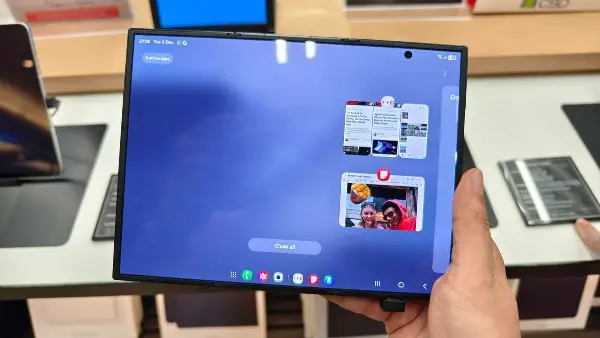
Samsung Galaxy Z TriFold vs. Z Fold 7: A Comparison of Foldable Phones
Samsung has released the Galaxy Z TriFold, a new foldable phone with a unique design featuring three back panels and two hinges. The phone is compared to the Galaxy Z Fold 7, a book-style foldable phone. The most notable difference between the two phones is the price, with the Galaxy Z Fold 7 starting at $2,000 and the Galaxy Z TriFold costing around $2,430. The design of the two phones also differs, with the TriFold having a wider aspect ratio and a larger screen when fully unfolded. The Galaxy Z TriFold has a 10-inch screen with a lower resolution of 2,160x1,584 pixels, while the Galaxy Z Fold 7 has an 8-inch screen with a higher resolution of 2,184x1,968 pixels. Both phones have minimal creases and a 120Hz adaptive refresh rate. The TriFold is promoted as a productivity-centric device, allowing for multitasking with three apps side by side and two more pop-up windows. In terms of performance, both phones use the same Qualcomm Snapdragon 8 Elite processor and run Samsung's One UI 8 built on Android 16. The Galaxy Z TriFold has a larger 5,600-mAh battery, while the Galaxy Z Fold 7 has a 4,400-mAh battery. The cameras on both phones are identical, featuring a 200-megapixel main camera, 12-megapixel ultrawide sensor, and 10-megapixel telephoto camera. Overall, the Galaxy Z TriFold and Z Fold 7 cater to different needs, with the TriFold suitable for those who want a full-size tablet that is portable and the Fold 7 ideal for browsing, reading, and using productivity apps.

LG Display Announces 27″ 4K OLED Panel with RGB-Stripe Layout and 240Hz Refresh Rate
LG Display has announced a new 27″ 4K OLED panel with a resolution of 3840 x 2160 and a refresh rate of 240Hz. This panel features a true RGB-stripe sub-pixel layout, which improves text clarity and reduces fringing. The panel also supports a "dual-mode" function, allowing users to switch between high-resolution (UHD 240Hz) and high-refresh-rate (FHD 480Hz) modes. The RGB stripe sub-pixel structure arranges the three primary color subpixels in a straight line, reducing visual distortions such as color bleeding and fringing. This is a change from their earlier WOLED panels, which had an added white sub-pixel for boosting brightness. The new panel has a pixel density of 160 PPI, although this may be higher if the actual panel size is slightly smaller. LG Display's new panel is the first in the world to achieve a 240Hz refresh rate while maintaining an RGB stripe structure. The company's Dynamic Frequency & Resolution technology allows for the dual-mode function. The panel's brightness specs are unclear, but removing the white sub-pixel may result in a drop in brightness. The panel's classification and structure are also unclear, with LG Display mentioning "Tandem WOLED" and "Tandem OLED" technologies in their promotional video. More information is expected to be released at CES in early January.

Google Store Offers Final 2025 Pixel Deals with Boosted Trade-ins
The Google Store has posted its final offers for the 2025 holiday season on Pixel devices. The first wave of deals on watches and earbuds ends on December 24 at 11:59 p.m. PT, with discounts including $50 off the Pixel Watch 4 LTE model and $30 off the Pixel Buds 2a. Discounts on phones are available until December 27, with deals such as $100 off the Pixel 9a, $200 off the Pixel 10, and $250 off the Pixel 10 Pro. Amazon is also offering some better deals via a promo code. Additionally, Google is offering boosted trade-in values, with trade-in values ranging from $80 for the Pixel 6a to $680 for the Pixel 9 Pro Fold. A bundle deal is also available, which includes the Pixel 9, official Case, and Pixel Watch 2 LTE for $499, a $300 discount. These deals are available for a limited time, so customers should act quickly to take advantage of the offers.

James Bond Game 007 First Light Delayed by Two Months
IO Interactive has delayed the release of 007 First Light, its upcoming James Bond origin story game, by two months. The game will now be released on May 27th, 2026. According to the developer, the decision to delay the game allows them to ensure the experience meets the level of quality players deserve on day one. The game is progressing well and is fully playable from beginning to end, but the additional two months will be used to further polish and refine the experience. IO Interactive is confident that this delay will set 007 First Light up for long-term success. The company shared the first trailer for the game in June and a gameplay deep dive in September, and actors like Lenny Kravitz and Gemma Chan will star in the game. IO Interactive, also known for the Hitman franchise, appreciates the patience and continued support they've received since revealing the game. They look forward to sharing more updates regarding 007 First Light in early 2026. The delay is intended to deliver the strongest possible version of the game at launch, bringing together breathtaking action, globe-trotting, spycraft, gadgets, car chases, and more.

Honor Unveils Gaming Phone with Cooling Fan and 10,000-mAh Battery
Honor is set to release its first-ever gaming phone, the Honor Win, on December 26. The phone features a unique turbo cooling fan, which aims to solve the issue of heat in gaming phones. The fan is placed alongside the camera module on the back and is designed to provide better cooling efficiency. It can spin for 25,000 rotations per minute and reduce the temperature by up to 7 degrees Celsius during intensive gaming sessions. The Honor Win also boasts a massive 10,000-mAh battery, the largest phone battery tested, which allows for hours of gaming without overheating. Despite its size, the phone doesn't feel heavy, weighing less than the iPhone 17 Pro Max. The phone is rated IP68, IP69, and IP69K for dust and water resistance, making it durable and able to survive being submerged underwater for up to 30 minutes. The Honor Win is equipped with a Qualcomm Snapdragon 8 Elite Gen 5 chip, three cameras, and 16GB of RAM. It also features "Charge Separation," which works like bypass charging to power the motherboard directly from the charger without touching the battery, reducing heat buildup and extending the battery's lifespan. With its unique cooling system and massive battery, the Honor Win is set to take on other gaming phones in the market. However, there is no word on pricing or a possible global release.

Lemon Slice Raises $10.5M to Develop Digital Avatar Technology
Lemon Slice, a digital avatar generation company, has raised $10.5 million in seed funding from Matrix Partners, Y Combinator, and other investors. The company is developing a diffusion model called Lemon Slice-2, which can create digital avatars from a single image. These avatars can be used in various applications, such as customer support, education, and mental health support. The model can work on a single GPU to livestream videos at 20 frames per second and can be integrated into websites with a single line of code. Lemon Slice is focusing on generating both human-like and non-human characters, and is using ElevenLabs' technology to generate voices for the avatars. The company plans to use the funds to hire engineering and go-to-market staff and to pay for compute bills to train its models. Lemon Slice faces competition from other digital avatar makers, but its technical prowess and generalized approach are expected to give it an edge. The company's technology is being used in areas such as education, language learning, e-commerce, and corporate training, and has the potential to overcome the "uncanny valley" and create highly realistic avatars.
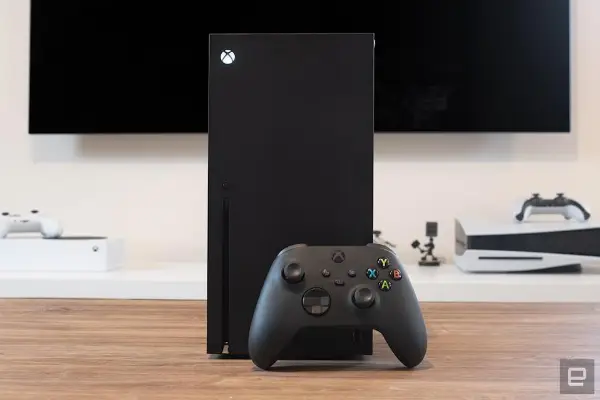
2025 Marked a Difficult Year for Xbox Amidst Poor Sales and Increased Competition
The year 2025 has been particularly challenging for Xbox, with the brand facing significant struggles in sales and competition from rivals like Sony's PlayStation 5. Despite its initial launch in 2020, the Xbox Series X failed to gain substantial traction, largely due to a lack of compelling games and increased prices resulting from supply chain issues and tariffs. Microsoft's decision to cancel highly anticipated titles such as the Perfect Dark reboot and Everwild further weakened its lineup. The company's move to raise prices across the board, with the Xbox Series S starting at $400 and the Series X at $600, did not help improve sales. In fact, slow sales led Costco to stop selling Xbox consoles altogether, and Microsoft chose not to offer discounts during Black Friday. The Xbox Game Pass, once considered one of the best deals in gaming, saw a significant price increase, reaching up to $30 a month for the Ultimate tier. Although Microsoft attempted to add more value to its cheaper tiers and upgraded its cloud streaming platform, the absence of consistent, must-play exclusive titles has devalued the service. Exclusive games like Avowed and South of Midnight were among the few highlights, but the latter is scheduled to release on PS5 and Switch 2 next year. Microsoft's foray into handheld gaming with the ASUS ROG Xbox Ally and Ally X was also met with high launch prices, making them inaccessible to most gamers. The company's potential shift towards a more PC-like experience, hinted at by its partnership with AMD and the development of a Steam Machine competitor, may signal a new direction for Xbox. This approach could allow Microsoft to leverage its PC roots and offer a unique gaming experience that differs from Sony's closed PlayStation platform. As the gaming landscape continues to evolve, Xbox's ability to adapt and innovate will be crucial in determining its future success.

AI-Powered Smart Home Assistants Struggle with Basic Tasks
The integration of generative AI assistants in smart homes has not lived up to its promise, with many struggling to perform basic tasks such as turning on lights or operating appliances. Despite the potential of AI to simplify and enhance the smart home experience, the new assistants have proven to be less reliable than their predecessors. Experts attribute this to the inherent differences between old and new technologies, with large language models (LLMs) being designed for conversational understanding rather than predictability and repetitiveness. Companies like Amazon and Google have acknowledged the struggles they've had in making their revamped generative AI-powered assistants reliably perform basic tasks. The use of LLMs has introduced randomness and interpretation mistakes, leading to inconsistencies in device control. To address this, companies are exploring the use of multiple models to power their assistants, but this has led to further inconsistencies and confusion. The struggles with AI-powered smart home assistants raise broader questions about the reliability of the technology and its potential applications. While experts believe that the path to a purely agentic assistant is possible, it may require significant time and investment. For now, users are left to navigate the limitations and inconsistencies of these new assistants, wondering if the potential benefits are worth the trade-offs in reliability and accuracy.

Apple Glasses Expected to Launch in 2026, Paving Way for Tim Cook's AR Ambitions
Apple is expected to unveil its highly anticipated Apple Glasses in 2026, likely in the latter part of the year, with shipping potentially delayed until 2027. According to Bloomberg, these glasses will serve as a precursor to Tim Cook's ultimate goal of creating true augmented reality (AR) glasses. The initial version of Apple Glasses will focus on Siri, AI, and functioning as an iPhone accessory, similar to the Apple Watch. Although the first iteration won't offer AR functionality, it will provide insight into the future design and software of AR glasses. The recent release of Vision Pro and visionOS has already showcased Apple's vision for AR software computing, referred to as "spatial computing." Despite Vision Pro not being a commercial success, visionOS has demonstrated significant strengths. The introduction of Apple Glasses will mark a crucial step towards realizing Tim Cook's top priority: developing industry-leading AR glasses that can be worn all day, overlaying data and images onto real-world views. Cook has been dedicated to this concept for over a decade and is reportedly investing considerable time and effort into its development. By the end of 2026, a clearer understanding of what to expect from Apple's AR glasses is anticipated, even if the technology for true AR glasses is not yet available.

Samsung's Second One UI 8.5 Beta Breaks Expert RAW App on Galaxy S25 Series
Samsung has released the second One UI 8.5 beta for the Galaxy S25, Galaxy S25+, and Galaxy S25 Ultra. However, this update has broken the Expert RAW app, a popular camera app among Samsung enthusiasts. The app, which offers advanced features like multi-frame processing and astrophotography mode, no longer works after installing the second beta. Users are prompted to update the app from the Galaxy Store, but no update is currently available. As a workaround, users can uninstall the app and sideload an older version, although this may cause stability issues. Samsung is likely working on an update to resolve the issue. The Expert RAW app is a key feature for many Samsung users, and its malfunction may be a significant inconvenience for those who rely on it for high-quality photography. The second One UI 8.5 beta also introduced new features for the camera's Pro camera modes through an update to the Camera Assistant app. Despite this issue, Samsung's One UI 8.5 beta continues to bring new features and improvements to its devices.

Call of Duty Co-Creator Vince Zampella Dies in California Car Crash
Vince Zampella, the co-creator of the popular video game series Call of Duty, has died in a car crash in California at the age of 55. Zampella's death was confirmed by Electronic Arts, which owns Respawn Entertainment, a game studio he co-founded. The crash occurred on a highway in Los Angeles on Sunday, when the Ferrari Zampella was traveling in veered off the road, struck a concrete barrier, and caught fire. Both Zampella and the other person in the vehicle died in the accident. Zampella created Call of Duty with Jason West and Grant Collier in 2003, and the game has since sold over 500 million copies, making it one of the most profitable gaming franchises. He also worked on other successful games, including Medal of Honor, Titanfall, and Apex Legends. Zampella was known for his focus on the player experience and his passion for making games. The gaming community has paid tribute to Zampella, with Infinity Ward, the developer of Call of Duty, saying he "will always have a special place in our history." Electronic Arts has also expressed its condolences, saying Zampella's death is "an unimaginable loss." A live-action Call of Duty film is currently in production, and Zampella's legacy is expected to continue to be felt in the gaming industry.
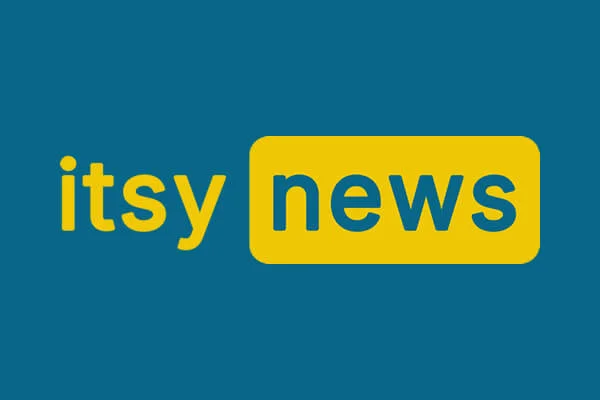
Nintendo Launches Hits for the Holidays Sale with Discounts on Select Games
Nintendo has announced the Hits for the Holidays Sale, offering discounts on digital versions of select games for the Nintendo Switch and Nintendo Switch 2 systems. The sale is live now and will run until 11:59 p.m. PT on January 4, 2026. Players can save on games such as Princess Peach: Showtime!, The Legend of Zelda: Echoes of Wisdom, and New Super Mario Bros. U Deluxe. Other discounted titles include EA SPORTS Madden NFL 26 Deluxe Edition, NBA 2K26 SLAM Edition, and Cyberpunk 2077: Ultimate Edition. The sale features a broad selection of titles for both the Nintendo Switch and Nintendo Switch 2 systems, including sports games, RPGs, and more. Notably, Hades II is on sale for the first time for both systems. Discounts range from 15% to 75% off the original price. To view the full list of games on sale, players can visit the My Nintendo Store or shop directly from their system on Nintendo eShop. The sale aims to provide a fun and affordable way to enjoy games during the holiday season.